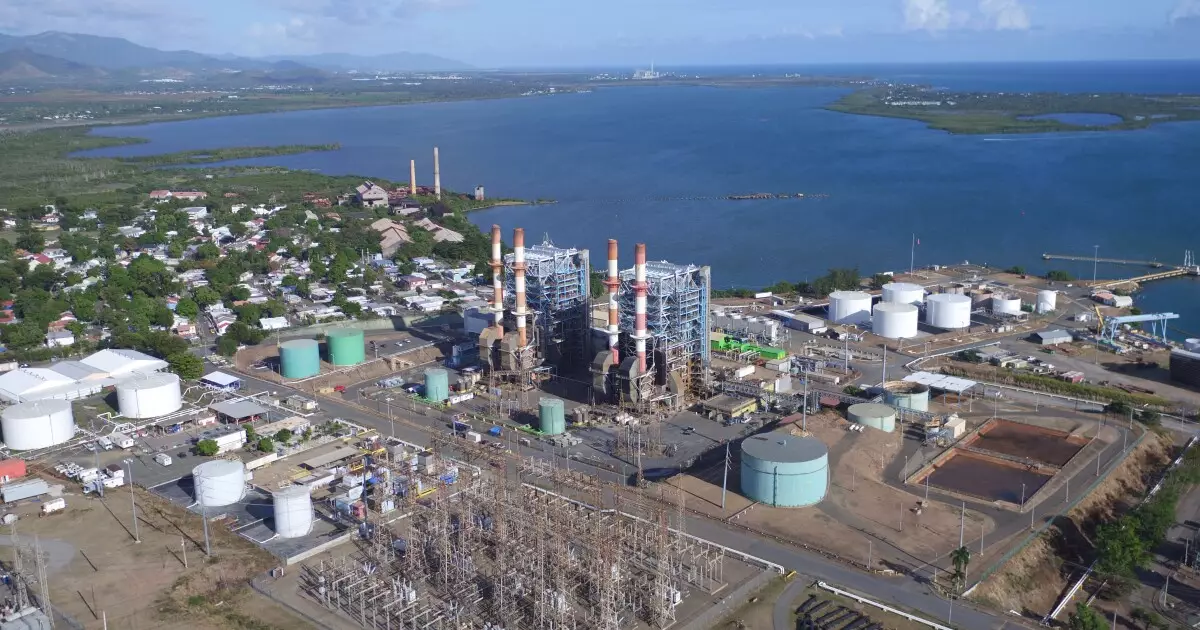In the throes of a financial crisis, Puerto Rico finds itself ensnared in a multifaceted bankruptcy battle that revolves around the Puerto Rico Electric Power Authority (PREPA) and its bondholders. The ongoing dispute over a staggering $3.7 billion administrative expense claim is more than just a financial transaction; it embodies the broader struggles of governance, accountability, and economic survival on the island. The Puerto Rico Oversight Board has become the unwitting referee in this high-stakes game, striving to uphold its vision of fiscal responsibility while facing the wrath of creditors who feel their rights are being infringed upon.
The central claim of the bondholders is that the administrative expenses should be prioritized above other claims against the Puerto Rican central government. This perspective, however, is met with resistance from the Oversight Board, which argues that the bondholders’ claim lacks the foundation it needs to rise above the murky waters of Puerto Rico’s financial obligations. This contention sets the stage for a clash that could redefine the landscape of assistance and support for the island’s beleaguered economy.
Political Dynamics at Play
Furthermore, the current situation is complicated by the political climate within Puerto Rico and the ethos of the Oversight Board. Faced with mounting criticism, the board has had to navigate a treacherous political landscape that is often more about preserving relationships than pursuing meritorious claims. The critiques of the board’s actions reveal a deeper divide: should the focus be on protecting the interests of secured creditors, or should the overarching goal be the long-term rehabilitation of Puerto Rico’s economy?
To this end, the bondholders’ attempts to mobilize claims under “constitutional avoidance” signal a desperate effort to assert their rights in the UNCLOS-like environment of Puerto Rican governance. This legalistic maneuvering, while potentially legal, raises ethical questions regarding the extent to which creditors should influence public policy. The Oversight Board’s steadfast adherence to the Commonwealth plan of adjustment exposes the tension between fiscal prudence and the need for immediate relief. A constant pull between satisfying creditors and fostering public welfare cannot be ignored, for it is this very struggle that has left Puerto Rico in its current predicament.
Challenging the Narrative
There’s a burgeoning argument within this crisis that the PREPA bondholders may be grasping for financial straws. Their assertion that PREPA’s failure to compensate them for the usage of net revenues is a breach of rights aligns with a broader narrative seen in corporate bankruptcies. But let us ask: at what cost does this compensation come? The bondholders’ fixation on extracting nearly four billion dollars raises pressing ethical dilemmas—should a struggling utility prioritize payment to creditors over ensuring that the lights stay on for residents?
Moreover, the allegation that PREPA has been financially mismanaged since the onset of bankruptcy deepens this conundrum. It draws attention to the systemic issues plaguing Puerto Rico’s economy. The bondholders, while within their legal rights, must reckon with the fact that their hard stance risks destabilizing an already teetering power structure. Shouldn’t there be a focus on collaborative solutions, rather than a siege-like approach that risks bringing about financial ruin for everyone involved?
The Future: A New Paradigm
This conflict could redefine not only the financial landscape of Puerto Rico but also its political dynamics. By pushing for a resolution that prioritizes the needs of the populace over those of institutional creditors, there lies an opportunity for a more equitable approach to governance and economic recovery. The pathway forward should transcend the rigidity of legal frameworks and financial doctrines; it necessitates reimagining the processes that govern economic recovery in the face of fiscal crisis.
Indeed, in the detailed layers of this battle, we see more than just legal arguments or fiscal accountability. We witness a unique moment in Puerto Rican history that demands reflection and reform. As stakeholders navigate this murky terrain, they have a chance to forge a more robust and resilient political structure—one that can, against all odds, restore faith among the people and foster sustainable recovery in the years to come.

